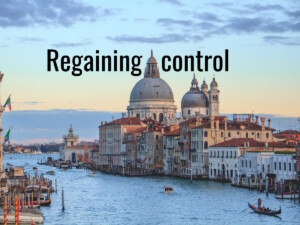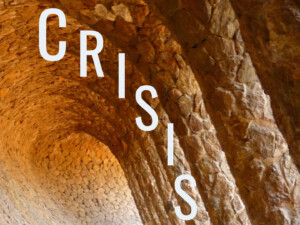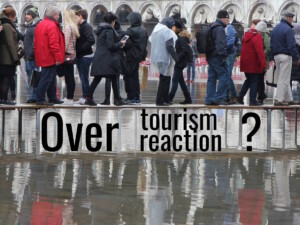Emil Kukalj on balanced tourism, overtourism, ideology, pragmatism, and possibility
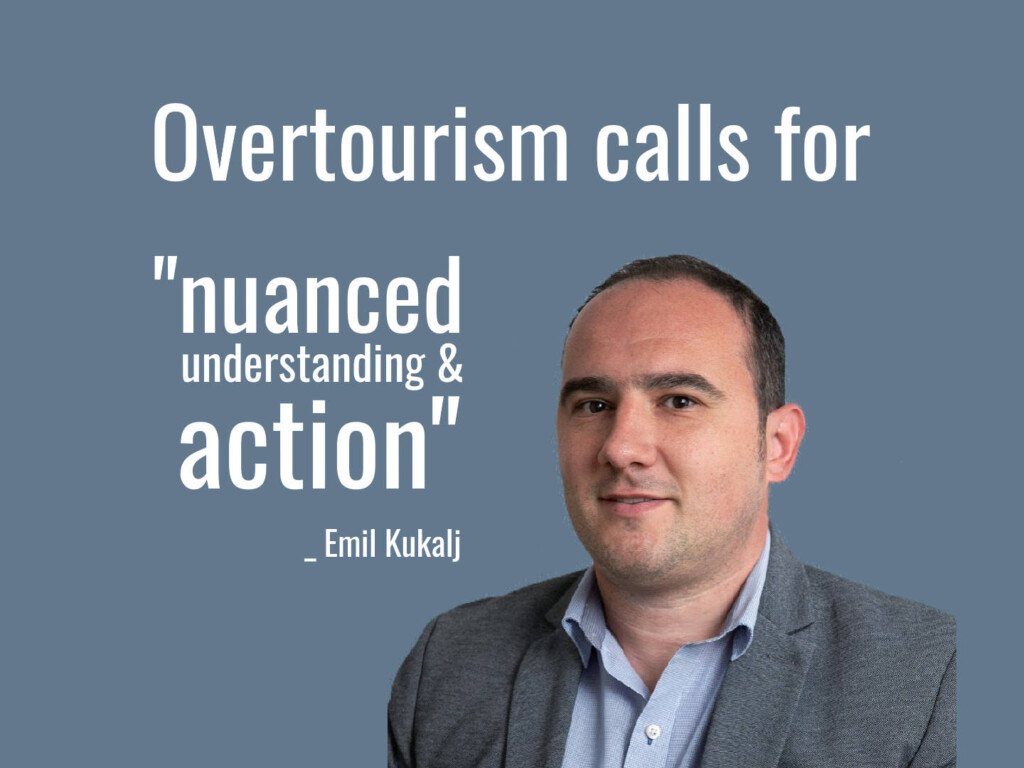
Emil Kukalj reckons ideology is only useful if it is actionable and leads to net positive results.
Saverio F Bertolucci interviewed Mr Kukalj for a Tourism’s Horizon Interview. For this “Good Tourism” Insight, Mr Bertolucci reflects. [The full transcript is on Substack.]
Contents
Who is Emil Kukalj?
I was delighted to discuss research and development with an established figure in the Balkan tourism industry: Emil Kukalj. I found the interview to be fascinating. This “GT” Insight represents what I personally took away from it.
Mr Emil Kukalj has spent most of his professional career at home in Montenegro, representing the destination in local, national, and European travel councils, and contributing to tourism’s flourishment there.
Mr Kukalj’s current role as R&D and Innovation Director at Montenegro Tourist Service DMC entails overseeing the development and implementation of new and existing projects, programs, and initiatives that aim to enhance the competitiveness and sustainability of the tourism sector in Montenegro and beyond.
Balancing income, infrastructure, communities, and nature
Montenegro is an emerging and rapidly-evolving tourism destination. Its Adriatic coastline and cultural ties with eastern Europe draw arrivals from Russia, Belarus and Ukraine — the best three markets for the country in terms of revenue — as well as Italy, France, Great Britain, and Scandinavia.
Montenegro shows the typical traits of an emerging destination: Mainly seasonal and coastal tourism with products and services consumed by a relatively young, well-off, loyal, and highly satisfied population between 30 and 49 years of age.
According to Emil Kukalj, the most important finding in Montenegro’s Strategic Master Plan related to addressing the issue of unbalanced tourism development:
“[T]he disparity in tourism development across regions [led to] a dedicated support strategy aimed to bolster underdeveloped areas in Montenegro.
“Targeted interventions, including infrastructure upgrades, promotional campaigns, and community-based tourism initiatives, sought to unlock the untapped potential of these regions.
“By fostering inclusive growth and leveraging local resources, Montenegro endeavoured to create a more balanced and resilient tourism ecosystem.”
Mr Kukalj’s research over the past decade is helping local and national policymakers choose which market segments to attract. Montenegro is working on managing its inflows with a clear aim to attract well-off clients from all over the world.
While ‘luxury’ might not be at the forefront of many apparently liberal movements, Montenegro’s strategy of boosting the luxury sector, investing in infrastructure, and protecting natural landscapes is projected to achieve sustainable outcomes.
This combination of luxury and nature may be the perfect habitat for the higher world classes and, more importantly, may generate the best return on investment and capacity management; if well-managed.
Evolution, overtourism, and adaptability
Evolution in the travel, tourism, and hospitality sectors inevitably entails change; change that policymakers, implementers, local governments, and communities must adapt to.
Emil Kukalj likes to emphasise the positives of tourism booms:
“The surge in international arrivals signifies increased economic opportunities, cultural exchange, and global connectivity. It fuels economic growth, job creation, and infrastructure development in the Balkans. The influx of tourists brings revenue streams, stimulates local businesses, and fosters cultural understanding among diverse communities.”
At the same time, Mr Kukalj knows that there are risks that have to be taken seriously, such as tourism’s mismanagement and economic overdependence as seen in parts of neighbouring Croatia. Tourism can indeed lead to environmental degradation and put strains on local resources and infrastructure, with negative short-term effects on locals and their lifestyle; long-term effects, if not dealt with appropriately.
Mr Kukalj emphasises the need to closely look at policy development, management, and implementation rather than speak of ‘overtourism’ as if it’s all of tourism’s fault.
Emil Kukalj:
“Since the term ‘overtourism’ was invented, as a representative of the industry, I interpret it as a call for nuanced understanding and action. While it underscores the negative impacts on destinations and communities, it also prompts us to recognise opportunities for positive change. By embracing sustainable practices and inclusive approaches, we can mitigate the adverse effects of overtourism while fostering equitable tourism development.”
Micro pragmatism vs macro ideology
Emil Kukalj’s participation in world fairs, events, and organisations is surely key in his understanding of the differences between the local, national, and even global in terms of destination management.
He appreciates the more careful and direct approaches of self-reliant small enterprises as compared to the more ideological considerations of larger organisations. The latter can often count on government funding and strategic partnerships with key ‘stakeholder’ groups to roll out their centralised top-down initiatives.
Mr Kukalj stresses the importance of pragmatic, locality-specific uses of tourism’s resources to realise more balanced prosperity, such as in cities:
“Cities with high levels of tourism may generate substantial revenue from visitor spending, accommodation taxes, or other tourism-related fees. Some of this revenue may be reinvested into local tourism initiatives, including marketing campaigns, infrastructure development, and visitor services, thereby bolstering the budget of city tourist boards.
“City tourist boards may [in turn] establish strategic partnerships with local businesses, cultural institutions, and community organisations to secure additional funding and resources for tourism promotion and development. These partnerships can enhance the capacity of micro organisations to implement impactful tourism initiatives.”
Just as not all localities in a destination are the same, neither are all cities the same. Each has its own set of circumstances.
“In highly competitive tourism markets, cities may invest heavily in destination marketing and visitor services to attract tourists and differentiate themselves from rival destinations. This could translate into larger budgets and resources for city tourist boards compared to their national counterparts.”
Overall, Mr Kukalj thinks that local collaboration between micro and macro organisations is essential for effective and sustainable tourism development, marketing, and management.
Be awake to possibility
Emil Kukalj’s final remarks should be passed down through the generations!
When I asked about the current ‘woke’ ideas perpetuated in many academic environments, Mr Kukalj again differentiates between well-intentioned ideology and more useful pragmatism. His thoughts go to the values of true professionalism: Ambition tempered by a sense of responsibility, and success-orientation centred in practical action.
Mr Kukalj’s statements are a call-to-action. (His own ambition is what made him one of the best tourism managers in the world.) He invites talents to diversify, discover their skills, listen to mentors, test their limits, and foster meaningful connections in order to thrive.
The R&D specialist points to technology, sustainability, and experiential analysis as cutting-edge spheres of study that should be on the radars of young people entering the industry:
“Innovative and functional ideas in the hospitality and travel segments embody consumer-centricity, technological integration, sustainability, authentic experiences, collaboration, and adaptability.
“By embracing these game-changing characteristics, businesses can drive growth, differentiate themselves in the market, and deliver exceptional value to travellers in a rapidly evolving industry landscape.”
Now it’s your turn: Make a change, be pragmatic, and embrace the challenge of our ever-changing world!
What do you think?
Share your own thoughts in a comment below. (SIGN IN or REGISTER first. After signing in you will need to refresh this page to see the comments section.)
Or write a “GT” Insight or “GT” Insight Bite of your own. The “Good Tourism” Blog welcomes diversity of opinion and perspective about travel & tourism, because travel & tourism is everyone’s business.
“GT” doesn’t judge. “GT” publishes. “GT” is where free thought travels.
If you think the tourism media landscape is better with “GT” in it, then please …
About the author
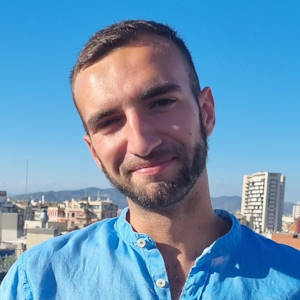
Saverio Francesco Bertolucci studied international tourism & leisure at Università di Bologna, Italy and sustainable tourism development at Aalborg University, Denmark.
Currently working as a commercial assistant with VDB Luxury Properties in Barcelona, Spain, the quadrilingual Italian is interested in destination management, the experience economy, and customer care, and has a passion for social sustainability, remote tourism, and co-creation.
About the Tourism’s Horizon Interviews
“Good Tourism” Insight Partner Tourism’s Horizon: Travel for the Millions, in collaboration with “GT”, has sought the candid views of well-known and respected experts on tourism’s past, present, and future.
The Tourism’s Horizon Interviews involves Jim Butcher, Vilhelmiina Vainikka, Peter Smith, Saverio Francesco Bertolucci, David Jarratt, and Sudipta Sarkar as interviewers. The “Good Tourism” Blog will publish their highlights and commentary as “GT” Insights.
Read the full transcripts of each interview on Tourism’s Horizon’s substack.



